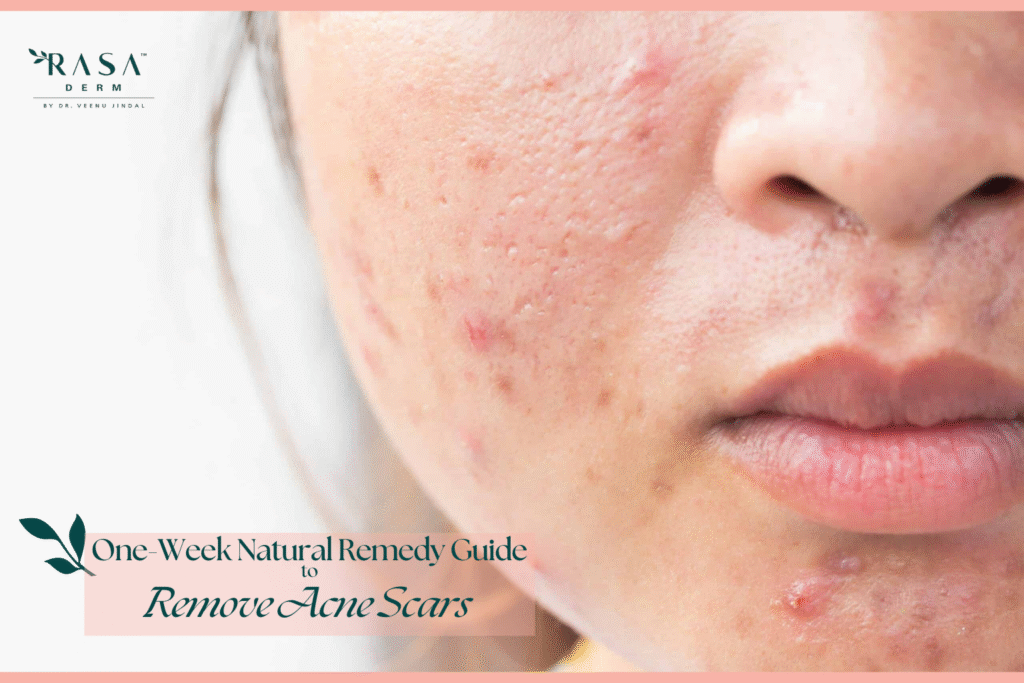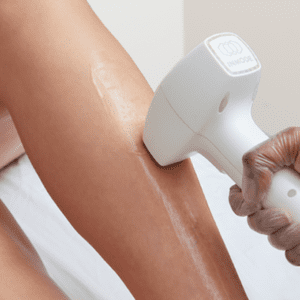Your skin may have difficulties throughout the winter. Low humidity, cold air, and indoor heating can deplete your skin’s natural moisture content, causing dryness, irritation, and sensitivity. At Rasa Derm, we are aware that taking a little additional care throughout the winter months is necessary to preserve healthy, radiant skin. These ten dermatologist-recommended winter skincare techniques can help you fight dryness and maintain hydrated, glowing skin.
-
Select a Mild Cleaner
Any skincare routine must include cleansing, but in the winter, it’s especially important to use a mild, moisturizing cleanser. Dryness can be exacerbated by harsh soaps and foamy cleansers that deplete your skin’s natural oils.
What to look for: Select cleansers that contain hyaluronic acid, ceramides, or glycerin. These efficiently remove dirt and pollutants while assisting in the retention of moisture. Steer clear of scents and cleaners containing alcohol in them if you have sensitive skin.
-
Invest in Better Moisturizer
The harshness of winter may be too much for your summer moisturizer to handle. During the winter months, use a heavier moisturizer that contains cream.
Pro Tip: To seal in hydration, look for moisturizers that contain occlusive ingredients like petrolatum or shea butter, which form a protective barrier. Ceramides and squalane are among the ingredients that assist fortify your skin barrier. After cleansing, use a moisturizer very away to keep the skin hydrated.
-
Always wear sunscreen.
UV rays are present all year round, despite the fact that many people only think about sunscreen on bright summer days. Up to 80% of the sun’s rays might be reflected by snow throughout the winter, raising your risk of UV damage.
Use a broad-spectrum sunscreen with an SPF of 30 or higher, as advised by dermatologists. Even on overcast days, use it as the final step in your morning skincare regimen.
-
Use a hydrating serum.
Using hydrating serums is a fantastic way to add more moisture to your skin. Seek out serums that contain niacinamide or hyaluronic acid, which draw water to the skin and enhance its texture.
Why it works: Hyaluronic acid is perfect for keeping your skin hydrated and firm throughout the winter because it can hold up to 1,000 times its weight in water. For optimal absorption, apply your serum after washing but before moisturizing.
-
Steer clear of hot showers
On a chilly winter day, a hot shower may feel wonderful, but extended hot water exposure can deplete your skin’s natural oils, causing dryness and irritation.
The best way to wash your face or take a bath is to use lukewarm water. To seal in hydration, take no more than ten minutes in the shower and use a moisturizer right away.
-
Guard Your Skin’s Barrier
Your first line of defense against environmental stimuli is your skin barrier. It is more prone to damage in the winter.
How to take care of it: Steer clear of excessive exfoliation and include barrier-repairing components in your skincare regimen, such as cholesterol, fatty acids, and ceramides. Use “barrier repair” or “soothing” solutions for skin that is sensitive or damaged.
-
Purchase a humidifier
Your skin may get dried as a result of the significant decrease in air humidity caused by indoor heating. By replenishing the air with moisture, a humidifier keeps your skin hydrated.
Bonus tip: For the best skin effects, place a humidifier in your bedroom and set it to 30–50% humidity.
-
Pay Attention to Your Hands and Lips
In the winter, your hands and lips are especially vulnerable to dryness and cracking. To maintain their softness and smoothness, they need extra attention.
For lips: Apply a moisturizing lip balm that contains nourishing components like shea butter, lanolin, or beeswax.
Lip licking can make dryness worse, so refrain from doing it.
For Hands: After washing your hands, use a thick hand cream.
When venturing outdoors, put on gloves to protect yourself from the wind and cold.
-
Use Exfoliation Carefully
To improve product absorption and get rid of dead skin cells, exfoliation is crucial. But exfoliating too much in the winter might peel your skin and irritate it.
Dermatologists advise using mild exfoliants like lactic acid or mandelic acid and limiting exfoliation to once or twice a week. If you have sensitive skin, stay away from physical washes that include coarse particles.
-
Select Appropriate Winter Skincare Items
A carefully planned skincare regimen based on your unique skin type is necessary for winter. You can use this easy winter skincare regimen:
- A mild, moisturizing cleanser is the ideal morning routine.
- Serum: A niacinamide or hyaluronic acid serum.
- Moisturizer: A nourishing moisturizer that repairs the barrier.
- Broad-spectrum sunscreen with an SPF of 30 or higher.
- Use the same mild cleanser for your evening routine.
- Serum: Take into account a calming serum that contains peptides or antioxidants.
- Moisturizer: For added moisture, use a nighttime mask or nourishing night cream.
- Extra Winter Skincare Advice for Particular Issues
- For added moisture, incorporate face oils like jojoba or rosehip into your routine if you have dry skin.
- Steer clear of alcohol-based toners since they may make dryness worse.
- Use products with soothing components, such as colloidal oatmeal, allantoin, or aloe vera, for sensitive skin.
- To avoid reactions, patch test new products.
- To avoid over-drying, combine acne treatments with moisturizing products for skin that is prone to acne.
- To prevent clogged pores, use moisturizers that aren’t comedogenic.
Winter Skin-Nourishing Foods
During the winter, your food can also affect the condition of your skin. Include foods high in:
- Flaxseeds, walnuts, and salmon are good sources of omega-3 fatty acids, which support the integrity of your skin’s lipid barrier.
- Almonds, sunflower seeds, and spinach are good sources of vitamin E, which shields your skin from oxidative damage.
- Antioxidants: To fight off environmental stressors, eat dark chocolate, green tea, and berries.
- Knowing When to Consult a Dermatologist
It’s recommended to see a dermatologist if your skin gets too dry, itchy, or irritated in the winter. Dr. Veenu Jindal of Rasa Derm specializes in developing customized skincare regimens for each individual, making sure your skin remains healthy and glowing all year long.
Concluding remarks
Skincare doesn’t have to be difficult in the winter. You may shield your skin from the harsh weather of the season by making little changes to your routine and selecting the appropriate products. Following these dermatologist-recommended guidelines will help you maintain a healthy, radiant complexion regardless of your skin type, whether you have dryness, irritation, or other issues.
We at Rasa Derm are available to help you during each season. To find out how our customized treatments and knowledgeable guidance may improve your skin, schedule a consultation right now.















